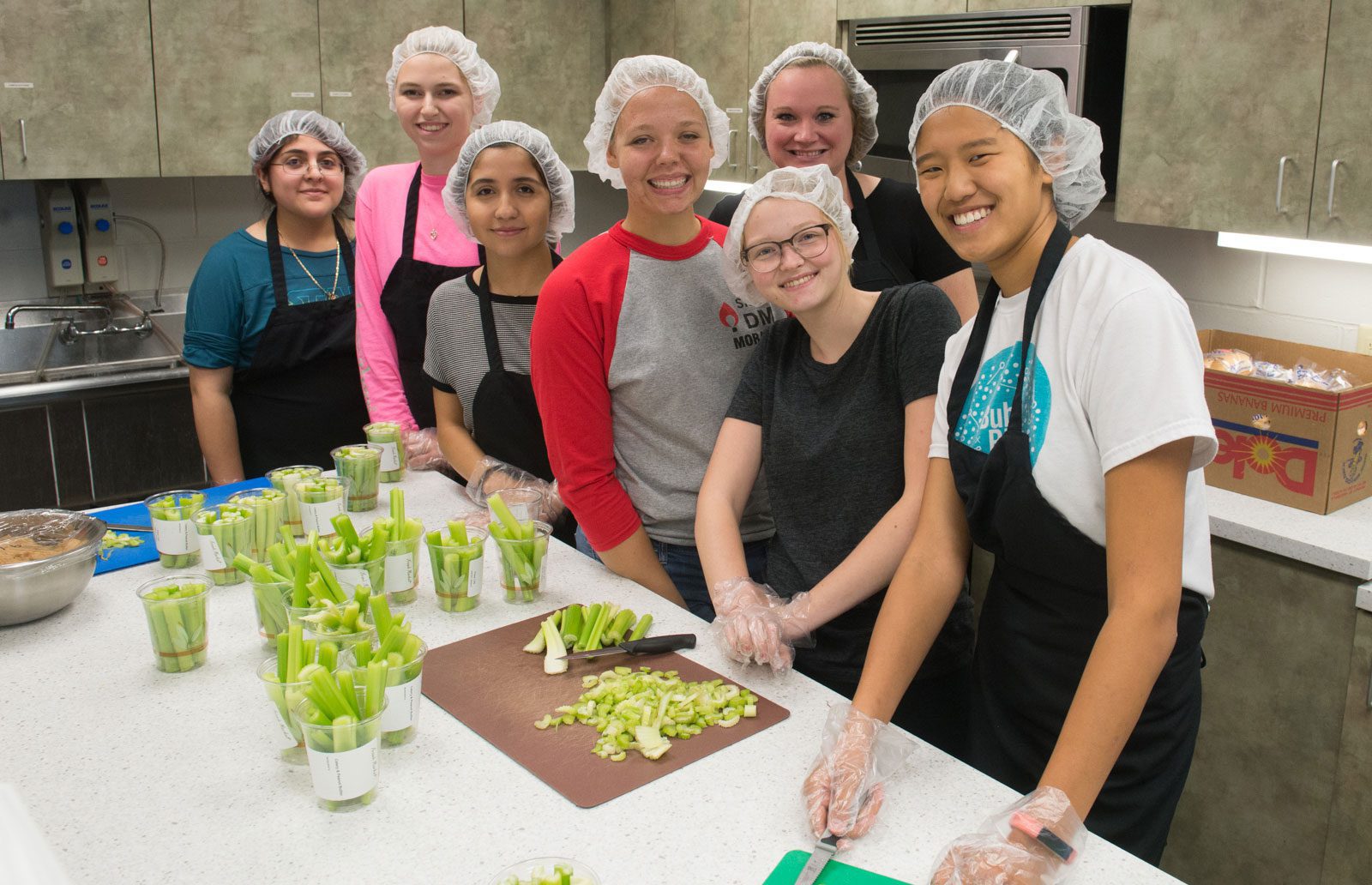
At Southern Illinois University Edwardsville (SIUE), Campus Recreation partners with multiple departments to address the needs of students and the community. Two examples of this collaboration include the Food Recovery Network (FRN), and the Food and Housing Insecurities Task Force.
Food Recovery Network
FRN is a student involved initiative housed under the Kimmel Student Involvement Center addressing hunger and feeding homeless or food-insecure community members off campus. The program addresses sustainability by recovering food that is left unused at the end of a dining day in the kitchens on campus, made possible through arrangements with the dining services chef. Campus Recreation’s role in this partnership is providing a catering kitchen in the facility to allow the FRN prep space for meals.
“Students use the food dining services holds for them to create individual meals for a local agency with a daily meal program for community members in need,” said Carolyn Compton, the assistant director of community engagement at SIUE. “Our FRN team has a meal preparation session once a week and creates between 70 to 90 meals a week.”
In fact, fall 2019 recorded 21 volunteers who completed a total of 42 hours of service, recovered 38 pounds of food, donated 315 pounds of food directly to local non-profit agencies and served 275 meals.
“Working with other on campus partners is a highly important piece of collaboration our students need to learn about while preparing to be global citizens in action,” said Compton. “Collaboration is key to forming a unified and strong team that supports our surrounding community as well as our on-campus community.”
Food and Housing Insecurities Task Force
The task force includes many campus partners including Counseling Services, Health Service, Campus Recreation, Career Development, Housing and Residential Life, Financial Aid, Student Involvement Center, Enrollment Management, Alumni Association, Campus Police, Faculty and several community partners.
“To collaborate with so many partners has been challenging to find the best times to meet, but it has also brought issues to the forefront,” said Riane Greenwalt, the director of Health Service. “Each unit has been able to contribute to identifying strengths of the campus as well as helping to identify gaps in services. The community partners have shared resources available to students outside of the university. The hope is to develop a mechanism for students to self-identify their need, the SIUE community to [have] a care report for students in need and a resource guide for students.”
Why Partnerships are Important
Each department on campus and community organization will have a different benefit to contribute. Keith Becherer, the director of Campus Recreation at SIUE, described the unique position Campus Recreation is in, with the ability to reach a majority of the campus, making the department an excellent one to partner with.
“Campus Recreation interacts with thousands of students in our traditional role, and through established rapport with our students, we all have had situations when students disclosed varying levels of need, whether academic, financial or personal,” said Becherer. “We can serve as a resource and a point of contact in an environment they feel comfortable in already.”










